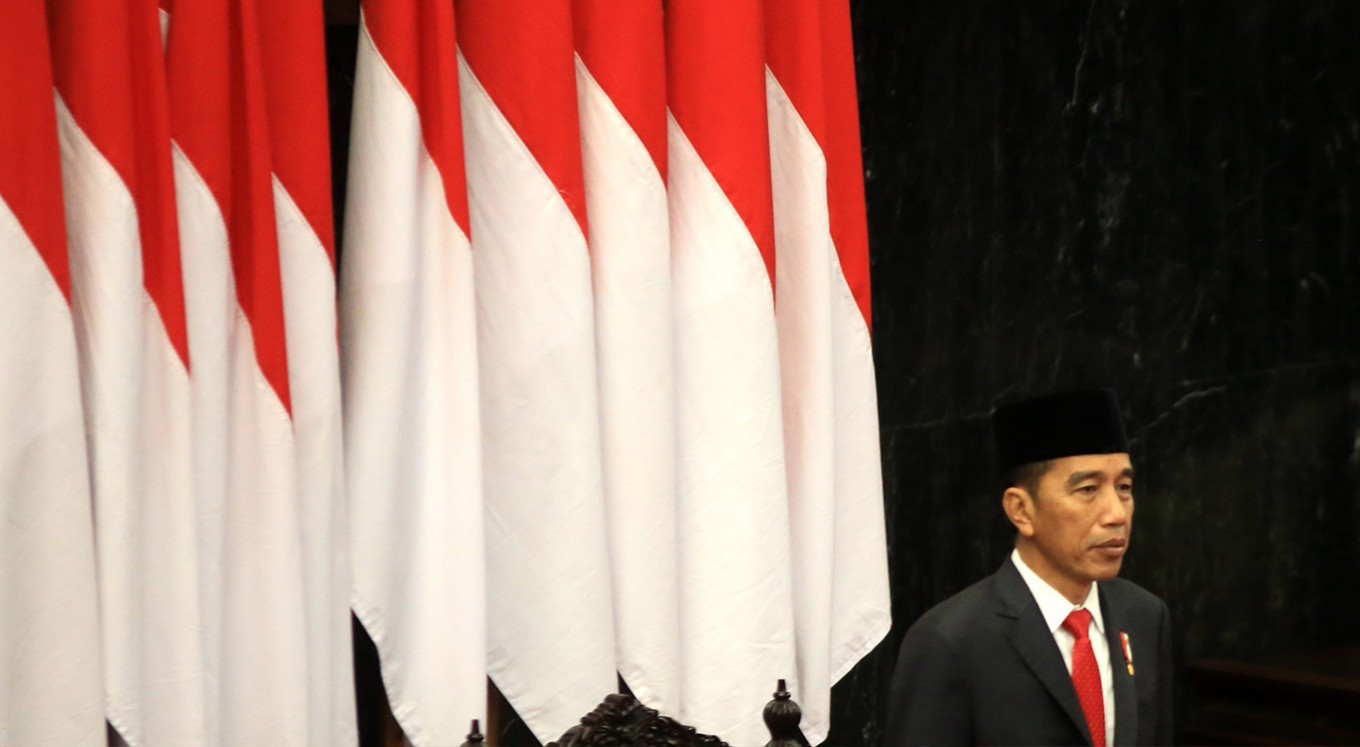Popular Reads
Top Results
Can't find what you're looking for?
View all search resultsPopular Reads
Top Results
Can't find what you're looking for?
View all search resultsShape of things to come
While his second term should be easier, Jokowi will still need to work extra hard, especially as he’ll have to do most of the heavy lifting himself, given his comparatively weak vice president in Ma’ruf Amin.
Change text size
Gift Premium Articles
to Anyone
P
resident Joko “Jokowi” Widodo has made it public that for his second term he will not set any milestones to measure his performance in office, be it the first 100 days, one year or five years. He just wants to get the job done and get it done fast. Considering that this is Jokowi’s last term and he will not run in 2024, refusing to allow others to dictate how he measures his performance makes sense.
But for those of us who like to keep tabs on every development while measuring key performance indicators, the first 100 days of any administration provides a key insight for predicting how things will shape up in the future, and judging from what has happened in the last three months, it is safe to conclude that the road ahead will become increasingly rough. Or, if we allow ourselves to be less pessimistic, it will be business as usual.
It is ironic that in the first three months, President Jokowi’s biggest success has come from the unfortunate events happening thousands of miles away in Wuhan, China. And that minor success did not come easily for the second-term President.
It was only after Jokowi expressed his displeasure about the slow progress of repatriating 245 Indonesian nationals trapped in Chinese cities locked down because of the coronavirus that the ball started rolling, with the Indonesians finally arriving on Saturday.
It was also reported that the President had become frustrated by the lack of action taken by relevant government agencies to tighten the country’s borders to prevent the spread of the coronavirus. This is a classic example of the lumbering bureaucracy failing to keep pace with a President who demands quick work and immediate results. This is likely to persist throughout Jokowi’s final term, unless something drastic changes.
In his second term, President Jokowi has attempted to make dramatic changes, with his goal to have omnibus laws passed by the House of Representatives in a matter of months among his early priorities. But even this goal has been hobbled by his underlings. Of the four omnibus bills — one on taxation, one on job creation, one on pharmaceuticals and one on the new capital city — only the taxation bill has reached the House.
As for the bill on job creation, President Jokowi has expressed displeasure about its current iteration, which privileges big business and tends to marginalize small businesses.
And then there’s the classic problem of political corruption, which will continue to compromise Jokowi’s reform agenda. The conflict of interest of Law and Human Rights Minister Yasonna Laoly in a graft probe involving politicians from the Indonesian Democratic Party of Struggle (PDI-P) is a clear example of how Jokowi’s penchant for having a “big-tent” political coalition could undermine good governance.
While his second term should be easier, Jokowi will still need to work extra hard, especially as he’ll have to do most of the heavy lifting himself, given his comparatively weak vice president in Ma’ruf Amin. Good luck trying, Mr. President.










